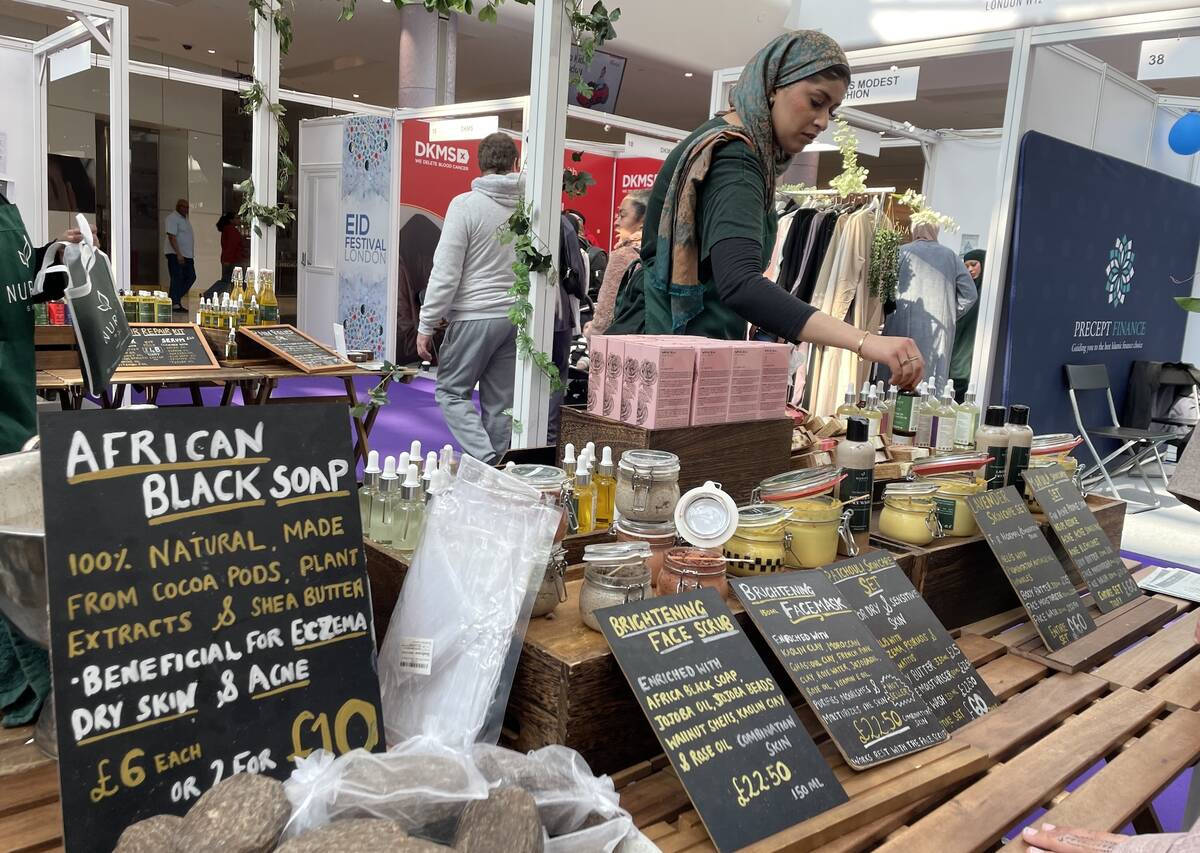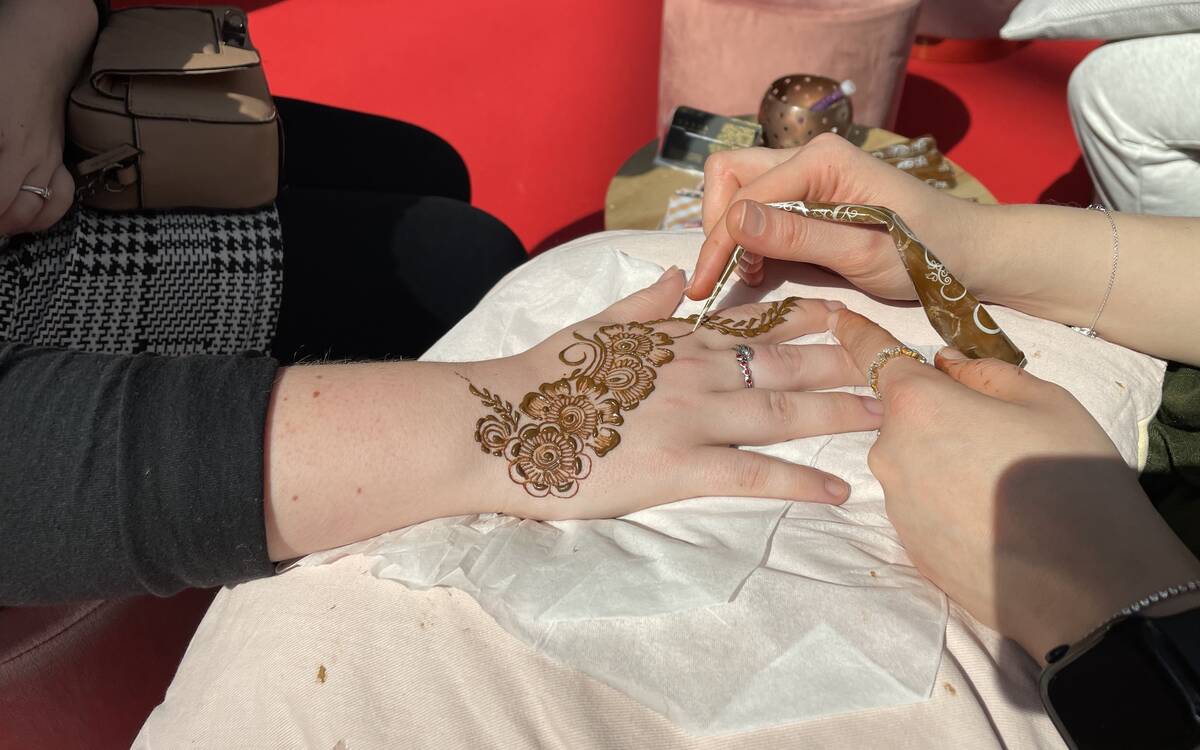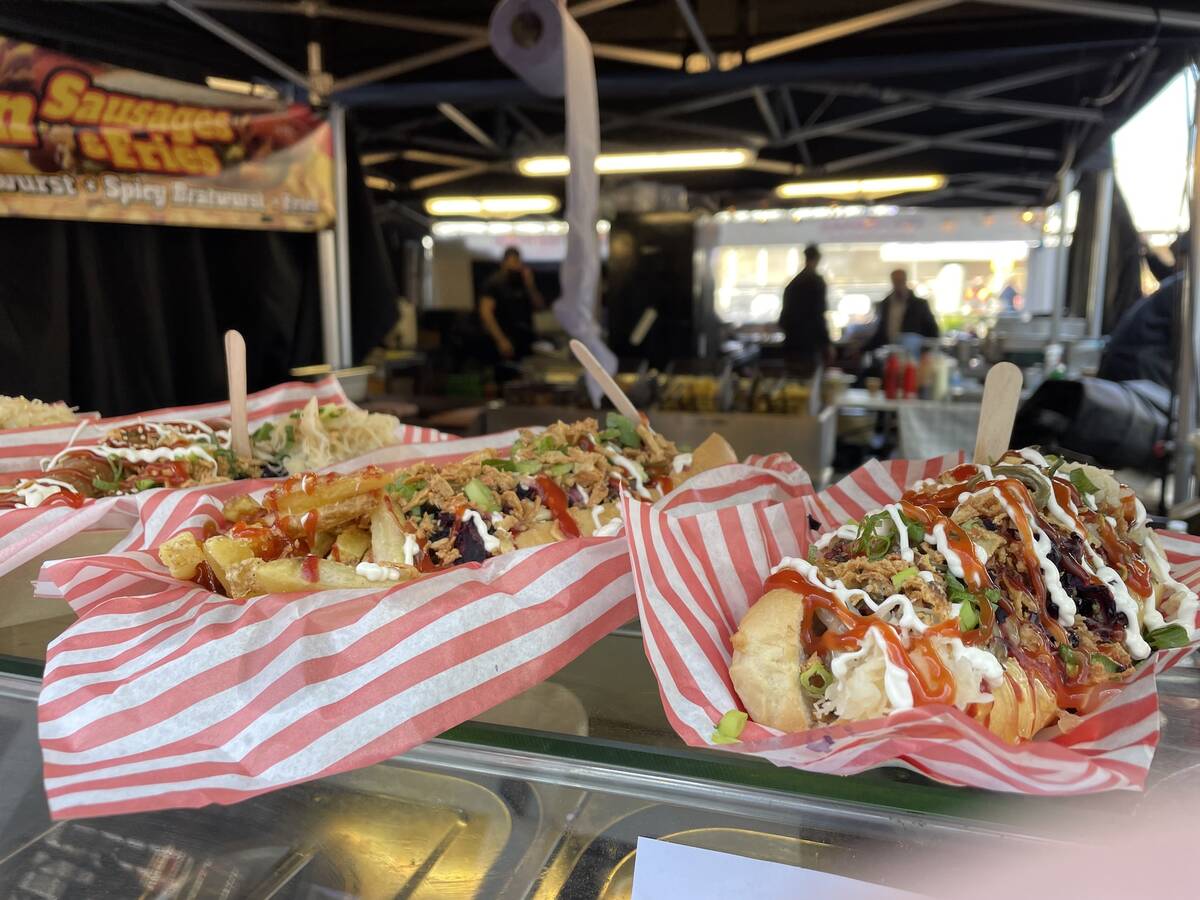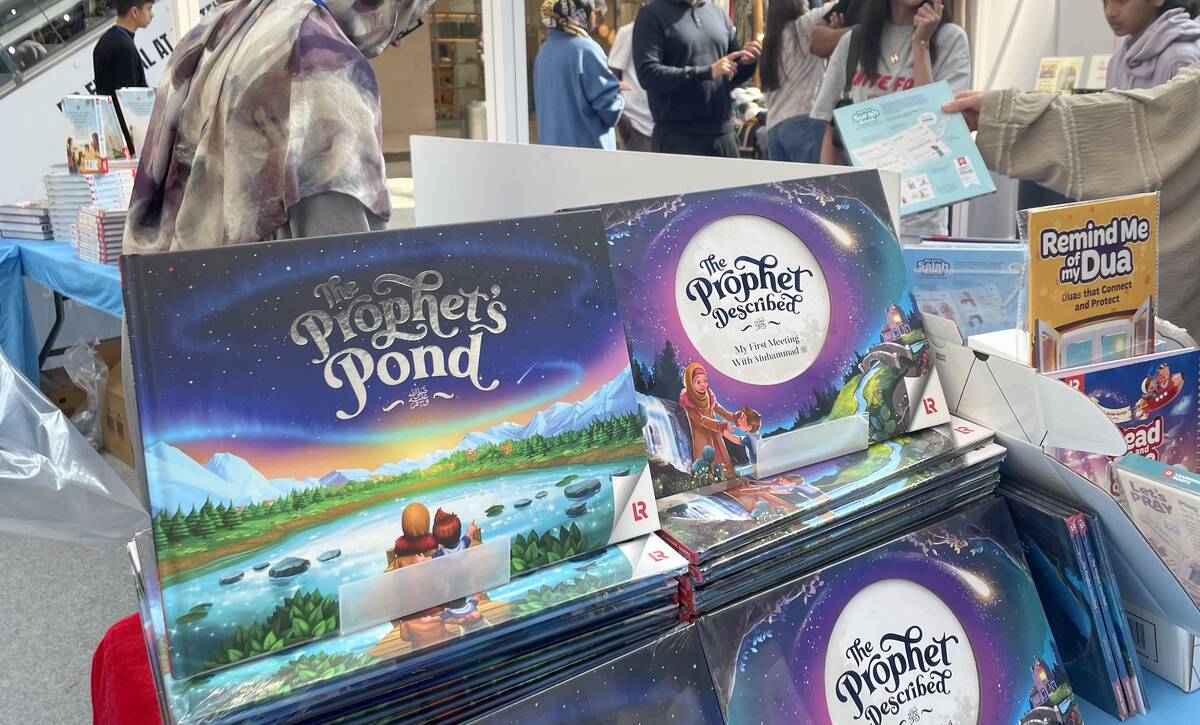LONDON: Eid Al-Fitr celebrations began in London this weekend and featured numerous events, the most notable happening at Westfield London, Europe’s largest shopping mall.
Although Eid was celebrated at the end of March in most Muslim countries to signify the end of the fasting month of Ramadan, some planning is required in Europe and the UK to mark the occasion at weekends.
Eid fell this time on the first weekend of beautiful spring days, warm and sunny, although there was a chilly breeze in the shade. It coincided with the Easter school holiday, the clocks have already moved forward, and the cherry blossoms are blooming.
The London Eid Festival at Westfield London has been celebrated for six successive years, and next weekend, from April 11 to 13, it takes place for a second year at Westfield Stratford City in East London.

Skin and healing products are sold by an independent vendor at Westfield London's Eid Festival. (AN Photo/Mustafa Abu Sneineh)
Westfield London is an enormous upmarket shopping destination featuring more than 460 stores. For those accustomed to shopping at local delis and occasionally making trips to Sainsbury’s, the interactive touch-screen map at Westfield is essential for navigating the seven levels of the mall.
The London Eid Festival features independent vendors selling jewelry, fragrances, books, clothes, and sweets near the front of the mall. Just outside Wood Lane Station, two rows of food stalls featuring halal cuisine from China to Mexico are ready for celebrators to enjoy meals under the sun. Families with children in prams, teenagers on Easter break, and those curious about Eid sit on colorful yellow and blue benches to listen to singing performances and watch children’s ballet in the yard.
Westfield is a mainstream location for all communities, and this gives us an opportunity to showcase the Muslim community to the rest of the world
Waleed Jahangir, Algebra Consulting
Organizers are expecting more than 300,000 visitors at both weekends of the Eid celebrations at Westfield London and Westfield Stratford City.
Waleed Jahangir, the managing director at Algebra Consulting, told Arab News that the celebration taking place in one of the world’s leading public venues is what makes the London Eid Festival unique.
“Westfield is a mainstream location for all communities and this gives us an opportunity to showcase the Muslim community to the rest of the world,” Jahangir said.
“When you hire a venue, the doors are closed with a majority of Muslims there; but here I want to showcase the power, the impact, and the festivities to the mainstream audience and in front of all the major brands … which benefit from the footfall and the sales.”

An employee applies henna dye on a customer's hand during the London Eid Festival. (AN Photo/Mustafa Abu Sneineh)
Most vendors at the London Eid Festival are independent businesses with a once-a-year opportunity to sell and showcase their products alongside Westfield’s major chains and big brands such as Apple, Nike, H&M, and Zara.
However, some of their products are pretty niche, such as Ghanaian African black soap made from cocoa pods. It appeared too adventurous for someone who grew up in Jerusalem using olive oil soap before discovering Mitchell’s wool fat soap on a drizzly day at Chatsworth House.
But the most popular item to buy at the festival was Dubai chocolate, according to the young food enthusiasts
Lubna, the vendor, acknowledges that Ghanaian black soap is not their best seller but the pain relief oil, which has been sold for the past nine years, is popular among customers for treating arthritis and joint pain.
Hanzalla, one of nearly 100 vendors at the London Eid Festival, sees the event as an excellent opportunity to showcase his halal food supplements, which are produced and packaged without alcohol or pig products.

A Korean food stall prepares Halal German sausages. (AN Photo/Mustafa Abu Sneineh)
Some vendors do not have physical stores but operate online, such as Learning Roots, a publisher that offers children’s books about the prophets and illustrated translations of the Qur’an.
Thobes for women, Palestine T-shirts, and oud essential oil are available for Eid celebrators.
However, I saved my cash for a halal Chinese meal of chicken, green beans, and noodles with chilli flakes. According to Ali and Mohammed, who are from Indonesia, this is the most popular meal.
There were three Korean food stalls, one of them selling German halal sausages. I asked Wahy, as he was preparing to open for customers at noon, about the popularity of Korean cuisine in the market, but he could not find a convincing reason other than “English people like it.”

Learning Roots publishes interactive books to teach children about Islam. (AN Photo/Mustafa Abu Sneineh)
But the most popular item to buy at the festival was Dubai chocolate, according to the young food enthusiasts who spoke to Arab News. Shayaan was visiting with his father Taleb and explained that it became famous after going viral on TikTok. It is his favorite thing.
Dubai chocolate is made with shredded phyllo dough and pistachio cream, the vendor explained as she served customers. She noticed it had become a bestseller over the last year or so.
Shayaan was clearly enjoying his Eid and the Dubai chocolate. Those who grew up in the 1990s in the Middle East remember how we eagerly waited for Eid to spend our money on Kinder Surprise to get our hands on the tiny toys; nowadays it is Dubai chocolate, and for good reason.
























